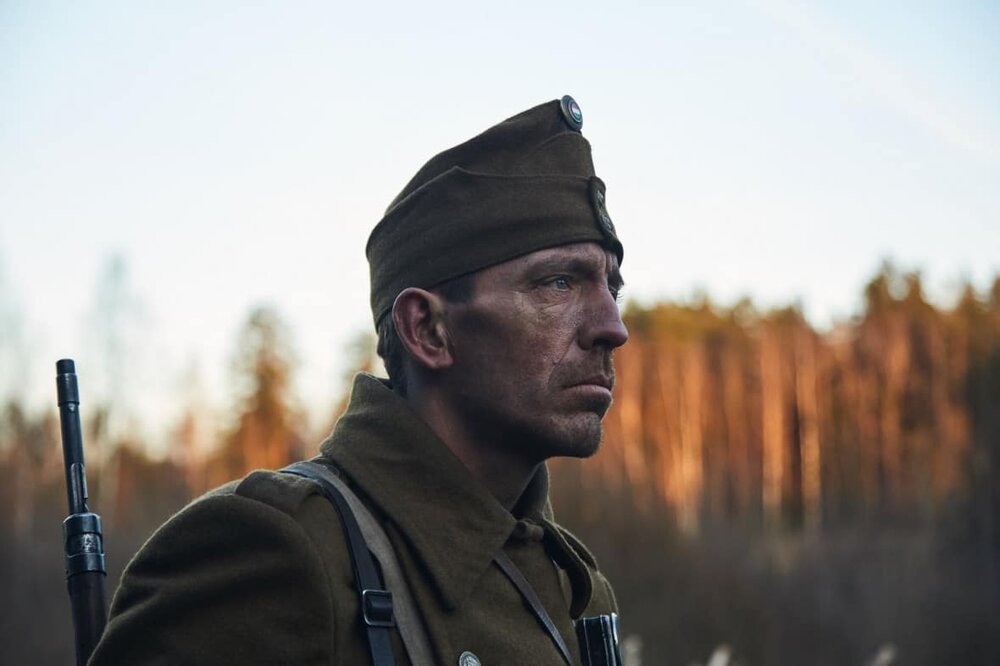Hungarian WWII drama “Natural Light” shines as best at Fajr film festival

TEHRAN – World War II drama “Natural Light” by Hungarian director-writer Dénes Nagy won the Golden Simorgh for best film in Salvation Cinema, the official section of the 38th Fajr International Film Festival, the organizers announced on Wednesday.
The story of the film is set in the occupied Soviet Union during World War II. István Semetka is a simple Hungarian farmer who serves as a Caporal in a special unit scouting for partisan groups. On their way to a remote village, his company falls under enemy fire. As the commander is killed, Semetka has to overcome his fears and take command of the unit as he is dragged into the chaos that he cannot control.
The closing ceremony of the festival was screened through several online video sharing and social media platforms, including YouTube.
Denis Cote from Canada was selected as best director for his 2021 comedy-drama “Social Hygiene”.
The award for best screenplay was given to Turkish drama “Brother’s Keeper” co-written by Gülistan Acet and director Ferit Karahan.
The story of the film begins in a Kurdish boarding school in the mountains of Eastern Anatolia, attended by Yusuf and his best friend Memo as pupils. Yusuf is faced with the struggle to challenge the school’s strict regulations to help Memo after he mysteriously falls ill. The plot of the movie complicates after the school is buried under heavy snowfall with no way out and an increasing desperation to address Memo’s deteriorating health.
The award for best actress went to Laura Birn for her portrayal of Finland’s most acclaimed painter, Helene Schjerfbeck, in Finnish filmmaker Antti J. Jokinen’s 2020 romance historical drama, “Helene”.
Hamid Farrokhnejad was named best actor for his role in the Iranian drama “Major” written and directed by Ehsan Abdipur.
“The White Wall” by Andrea Brusa and Marco Scotuzzi from Italy won the award for best short in Salvation Cinema.
“Asteroid” by Mehdi Hosseinivand from Iran received the award for best film in the Eastern Vista competition, which is dedicated to Asian cinema.
The film tells the story of Ebrahim, a 12-year-old boy who lives in a remote desert village with his mother and five younger sisters and brothers. His mother still believes that her husband and elder son who left in search of work will one day return to the village, as Ebrahim is the only breadwinner in the family.
Iranian director Alireza Samadi won the award for best director for “Staging”, which revolves around a group of people who stage fake car accidents in a bid to extract money from insurance companies.
The award for best screenplay in this category went to “200 Meters” by Palestinian director-writer Ameen Nayfeh.
Upon learning his son has had an accident, a desperate Palestinian construction worker at wit’s end attempts to smuggle himself past the separation wall between Israel and the West Bank to see him.
Director of cinematography Mark Lee Ping-Bing received the award for best artistic achievement for his collaboration on Chinese director Cao Jinling’s drama “Anima”.
“Bethlehem 2001” by Ibrahim Handal was picked as best short of the Eastern Vista competition. The film is about a young Palestinian who recalls childhood memories of the military invasion and siege of Bethlehem by Israeli forces.
The festival gave this year’s Muhammad Al-Ameen Award, which is presented to films promoting humanitarian issues, to Bulgarian director Ivaylo Hristov’s drama, “Fear”.
The film tells the story of Svetla, a widow who has recently lost her job and is living next to the Bulgarian-Turkish border. There are many cases of refugees in her village due to its location. One day she meets a refugee from Africa and this changes her life.
The first-film director award went to Kaveh Mazaheri from Iran for his debut film, “Botox”.
The film, which is a co-production between Iran and Canada, is about sisters Akram and Azar. Both lie about their brother’s disappearance, telling everyone he fled to Germany. Day after day, the lie becomes bigger and more unmanageable, leading everyone to a dark and mysterious destiny.
The award for best film in the interreligious film section went to Afghan filmmaker Ramin Rasuli’s drama “Dogs Did Not Sleep Last Night”.
A joint production between Iran and Afghanistan, the film tells the story of a remote Afghan village seized by the Taliban, and the exploits occurring after a village girl takes a U.S. airborne soldier, who has survived a helicopter crash, into their village.
The NETPAC (Network for the Promotion of Asia Pacific Cinema) was presented its award to “Major” from Iran, while the International Federation of Film Critics – FIPRESCI gave its prize to “200 Meters”.
Photo: Ferenc Szabó acts in a scene from “Natural Light” by Hungarian director-writer Dénes Nagy.
MMS/YAW
Leave a Comment